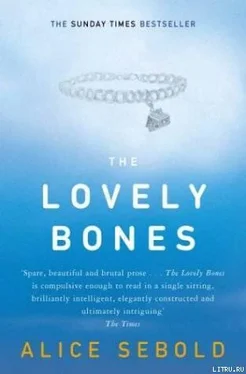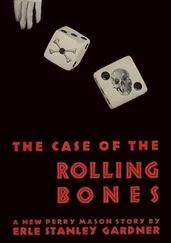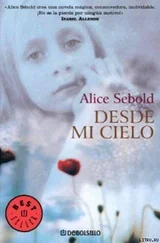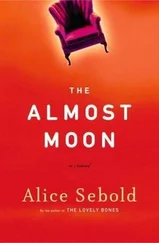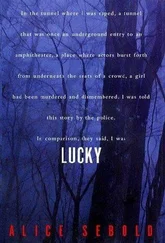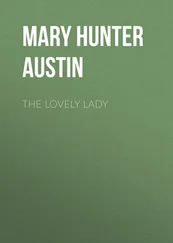With their backs to my mother as she descended were a group of adults – very official and frantic-looking – wearing black and navy with cool slants to their hats and boots. Then my wildlife photographer’s eye saw the tripods and silver circles rimmed by wire, which, when a young man moved them left or right, bounced light off or on the baby on her blanket.
My mother started laughing, but only one assistant turned to notice her up among the rocks; everyone else was too busy. This was an ad for something, I imagined, but what? New fresh infant girls to replace your own? As my mother laughed and I watched her face light up, I also saw it fall into strange lines.
She saw the waves behind the girl child and how both beautiful and intoxicating they were – they could sweep up so softly and remove this girl from the beach. All the stylish people could chase after her, but she would drown in a moment – no one, not even a mother who had every nerve attuned to anticipate disaster, could have saved her if the waves leapt up, if life went on as usual and freak accidents peppered a calm shore.
That same week she found work at the Krusoe Winery, in a valley above the bay. She wrote my sister and brother postcards filled with the bright fragments of her life, hoping in a postcard’s limited space she would sound cheery.
On her days off, she would walk down the streets of Sausalito or Santa Rosa – tiny upscale towns where everyone was a stranger – and, no matter how hard she tried to focus on the hopeful unfamiliar, when she walked inside a gift shop or café the four walls around her would begin to breathe like a lung. She would feel it then, creeping up the side of her calves and into her gut, the onslaught, the grief coming, the tears like a small relentless army approaching the front lines of her eyes, and she would breathe in, taking a large gulp of air to try to stop herself from crying in a public place. She asked for coffee and toast in a restaurant and buttered it with tears. She went into a flower shop and asked for daffodils, and when there were none she felt robbed. It was such a small wish – a bright yellow flower.
The first impromptu memorial in the cornfield opened in my father the need for more. Yearly now, he organized a memorial, to which fewer and fewer neighbors and friends came. There were the regulars, like Ruth, and the Gilberts, but more and more the group was filled out by kids from the high school who, as time went by, knew only my name and even that only as a large dark rumor invoked as a warning to any student that might prove too much a loner. Especially girls.
Each time my name was said by these strangers it felt like a pinprick. It was not the pleasant sensation that it could be when my father said it or when Ruth wrote it in her journal. It was the sensation of being simultaneously resurrected and buried within the same breath. As if in an economics class I had been ushered over into a column of transmutable commodities: the Murdered. A few teachers, like Mr. Botte, remembered me as a real girl. Sometimes on his lunch hour he would go and sit in his red Fiat and think about the daughter he had lost to leukemia. In the distance, out past his window, the cornfield loomed. Often, he would say a prayer for me.
In just a few short years, Ray Singh grew so handsome that a spell radiated from him when he walked into a crowd. His adult face had still not settled on him, but, now that he was seventeen, it was just around the corner. He exuded a dreamy asexuality that made him attractive to both men and women, with his long lashes and hooded eyelids, his thick black hair, and the same delicate features that were still a boy’s.
I would watch Ray with a longing different from that which I had for anyone else. A longing to touch and hold him, to understand the very body that he examined with the coldest of eyes. He would sit at his desk and read his favorite book – Gray’s Anatomy - and depending on what he was reading about he would use his fingers to palpate his carotid artery or his thumb to press down and follow the longest muscle in his body – the sartorius, which ran from the outside of his hip to the inside of his knee. His thinness was a boon to him then, the bones and muscles clearly distinguished beneath the skin.
By the time he packed his bags for Penn, he had committed so many words and their definitions to memory that I grew worried. With all that, how could his mind contain anything else? Ruth’s friendship, his mother’s love, my memory would be pushed to the back as he made way for the eye’s crystalline lens and its capsule, the semicircular canals of the ear, or my favorite, the qualities of the sympathetic nervous system.
I need not have worried. Ruana cast about the house for something, anything, that her son might bring with him that was equal in heft and weight to Gray’s and that would, she hoped, keep the flower-gathering side of him alive. Without his knowing, she tucked the book of Indian poetry into his luggage. Inside was the long-forgotten photo of me. When he unpacked inside Hill House dormitory, my picture fell on the floor by his bed. Despite how he could dissect it – the vessels of the globe of my eye, the surgical anatomy of my nasal fossae, the light tincture of my epidermis – he could not avoid them, the lips he had once kissed.
In June 1977, on the day of what would have been my graduation, Ruth and Ray were already gone. The day classes ended at Fairfax, Ruth moved to New York City with her mother’s old red suitcase full of new black clothes. Having graduated early, Ray was already at the end of his freshman year at Penn.
In our kitchen that same day, Grandma Lynn gave Buckley a book on gardening. She told him about how plants came from seeds. That radishes, which he hated, grew fastest, but that flowers, which he loved, could grow from seeds as well. And she began to teach him the names: zinnias and marigolds, pansies and lilacs, carnations and petunias, and morning glory vines.
Occasionally my mother called from California. My parents had hurried and difficult conversations. She asked after Buckley and Lindsey and Holiday. She asked how the house was holding up and whether there was anything he needed to tell her.
“We still miss you,” he said in December 1977, when the leaves had all fallen and been blown or raked away but even still, with the ground waiting to receive it, there had been no snow.
“I know that,” she said.
“What about teaching? I thought that was your plan.”
“It was,” she conceded. She was on the phone in the office of the winery. Things had slowed up after the lunch crowd, but five limos of old ladies, three sheets to the wind, were soon due in. She was silent and then she said something that no one, least of all my father, could have argued with. “Plans change.”
In New York, Ruth was living in an old woman’s walk-in closet on the Lower East Side. It was the only thing she could afford, and she had no intention of spending much time there anyway. Daily she rolled her twin-sized futon into the corner so she could have a little floor space in which to dress. She visited the closet only once a day, and she never spent any time there if she could help it. The closet was for sleeping and having an address, a solid if tiny perch in the city.
She worked service bar and walked every inch of Manhattan on her off hours. I watched her pound the cement in her defiant boots, sure that women were being murdered wherever she went. Down in stairwells and up inside beautiful highrises. She would linger at streetlights and scan the facing street. She wrote small prayers in her journal at the cafés and the bars, where she stopped to use the bathroom after ordering the cheapest thing on the menu.
She had become convinced that she had a second sight that no one else had. She didn’t know what she would do with it, save taking copious notes for the future, but she had grown unafraid. The world she saw of dead women and children had become as real to her as the world in which she lived.
Читать дальше
